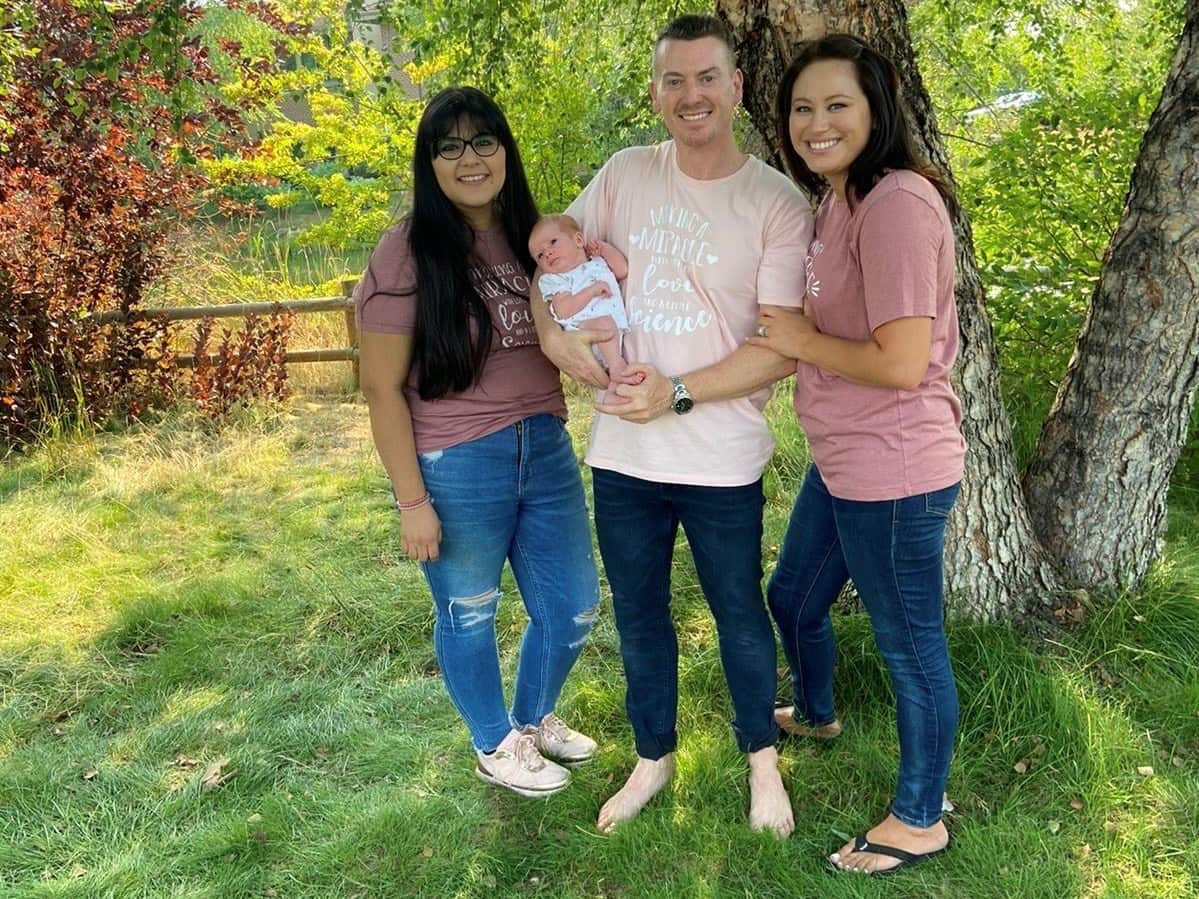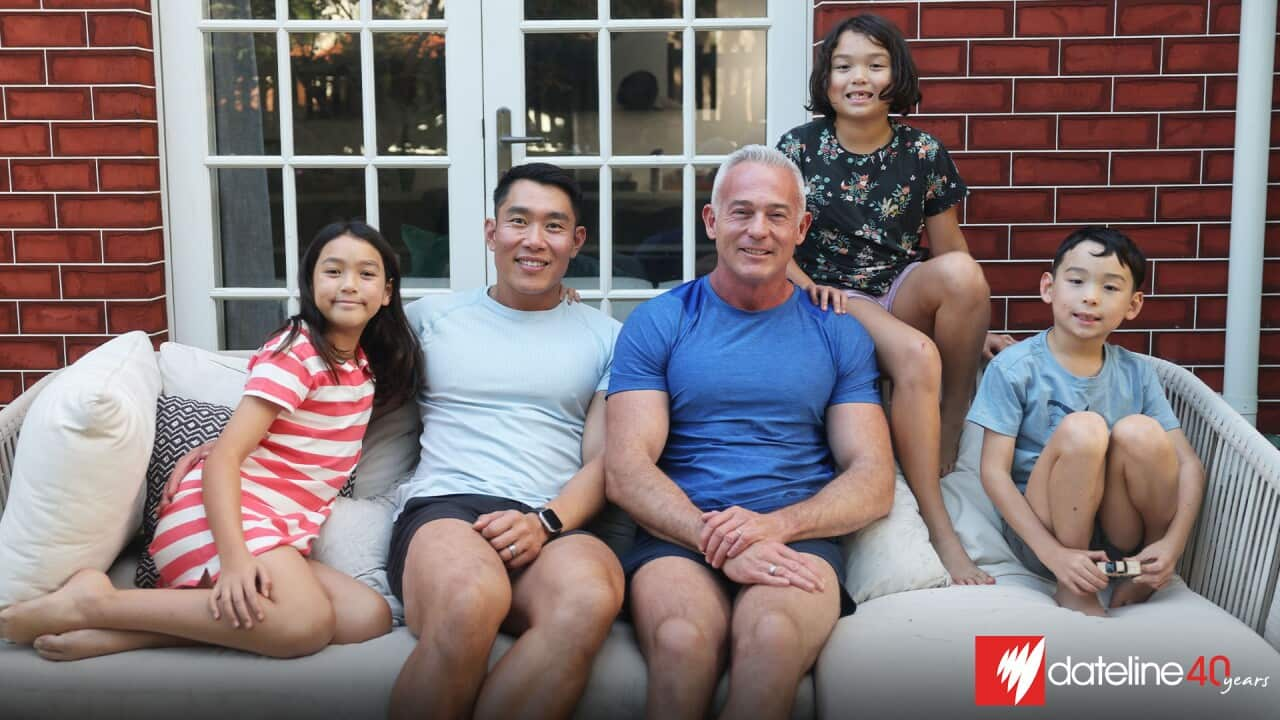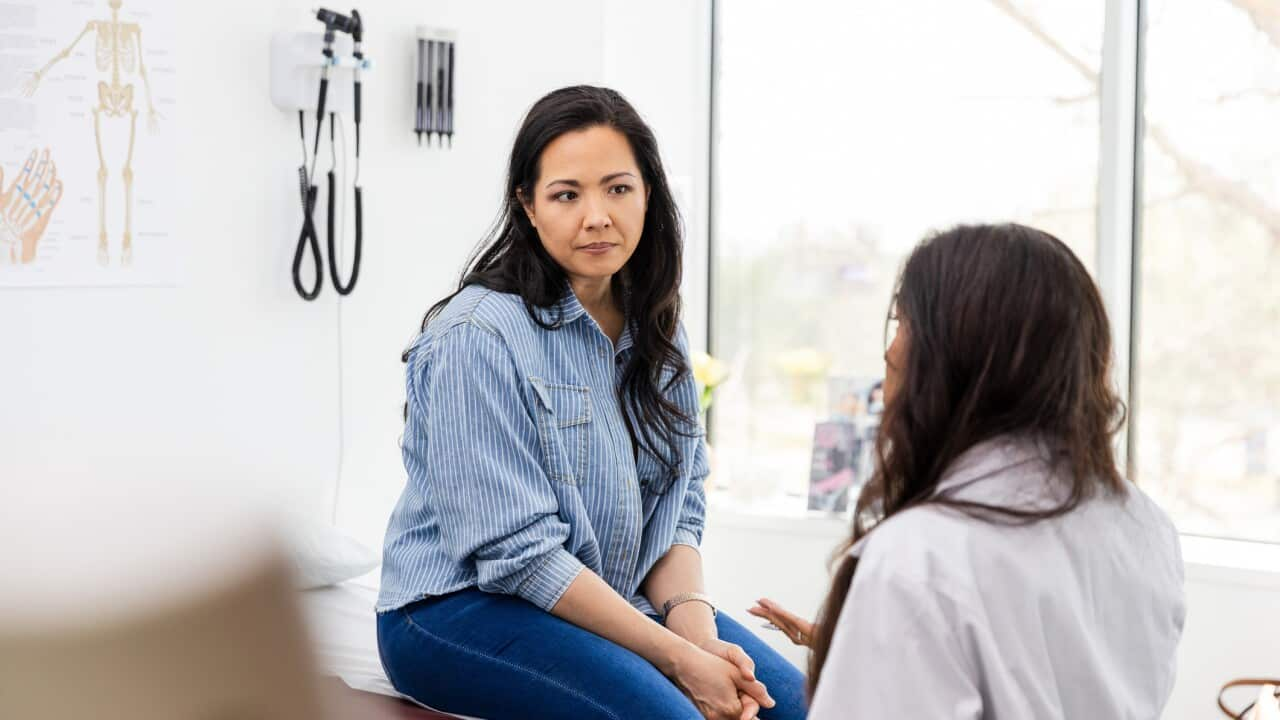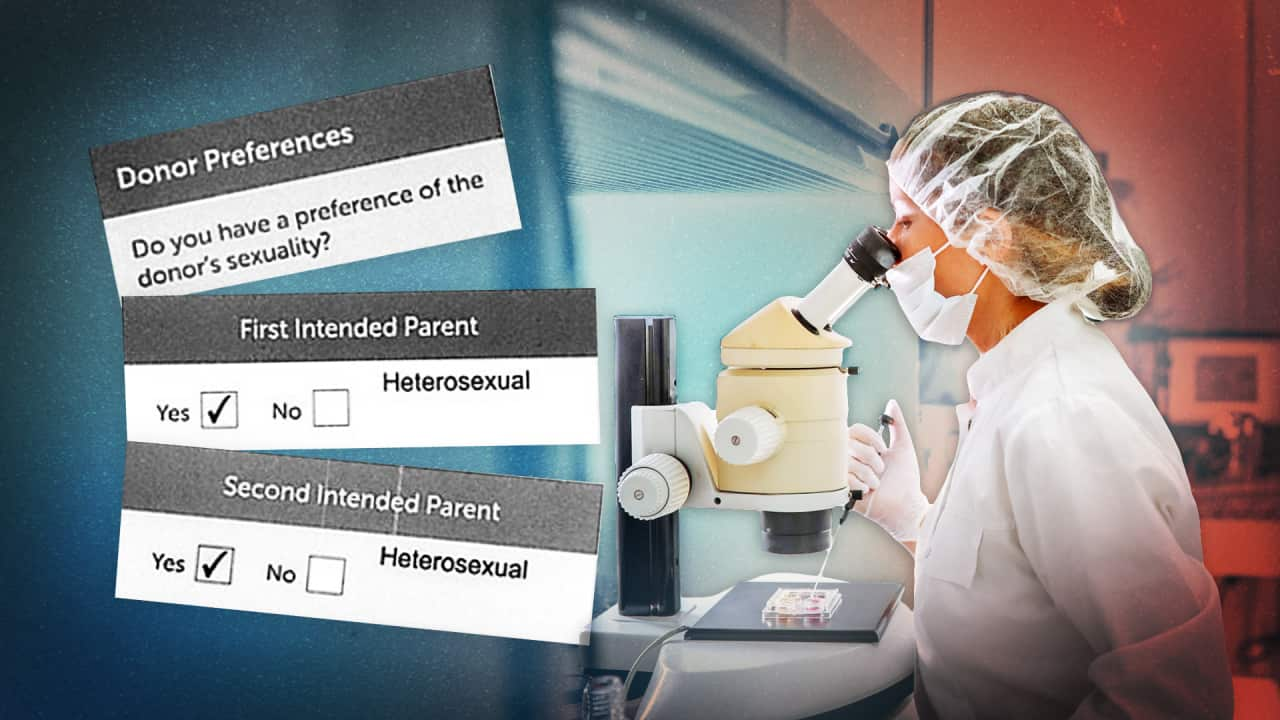Western Australians have left the state — and even gone overseas — to pursue their dreams of having children due to laws that prevent gay couples and single men from becoming parents.
The WA government is now planning to bring in legislation to overhaul the state's surrogacy and in vitro fertilisation (IVF) laws, eight years after it first promised reforms.
The changes would allow same-sex male couples, single men, transgender and intersex people access to altruistic surrogacy. Currently, only heterosexual couples and single women can pursue altruistic surrogacy.
'Monumental legislation'
Gay father of two Paul Hadfield-Jia said the legislation would be life-changing for many if passed. He knows first-hand how hard it can be for same sex couples in WA to have children.
Hadfield-Jia told SBS News the laws that restrict IVF and surrogacy are "archaic", and led to him travelling to the United States to become a parent, as he and his husband were not able to do so in Perth.
Western Australia is the only Australian state where same sex couples and single men are not allowed to access surrogacy.
After finding an egg donor and surrogate in the US state of Idaho, Hadfield-Jia had the first of his two children, his daughter Samantha.
Bringing her back to Australia was another "challenging" process.

Paul Hadfield-Jia with his daughter Samantha, surrogate Dianna and egg donor Mariah. Credit: Supplied
"It's a whole process and it's so challenging, and there's so much more than just having to care and love for a child that's just been born."
He said he felt fortunate that overseas travel and surrogacy were an option for him, but for many, the associated costs remain a barrier to parenthood.
"This is the most monumental life-changing legislation that we've had in years from a gay community perspective," he said.
"In 2017, there was marriage equality, but it was only half the job. You're allowed to marry who you love, but you are not allowed to create a family because of who you love," Hadfield-Jia said.
He's hopeful the legislation would pass the state's parliament.
"Why would our MPs not want to support legislation which will allow Western Australians to have their children and families safely here in WA?"
Gay couples have felt 'not welcome' in WA
Sarah Jefford, a family creation lawyer and a surrogate herself, told SBS News she has had clients leave WA to become parents.
"I have had lesbian couples who haven't been able to do egg sharing in WA, so they have also travelled interstate to access treatment elsewhere," she said.
"I know of several clients that are now living in Melbourne and Sydney because they didn't feel like they were welcome and thought this is supposed to be a progressive country, but actually the rainbow flag waving is bollocks because we're not even welcome here."
Jefford said if the legislation is passed, it would help more people become parents, saying the state had become "less diverse" due to the restrictions.
"Many people have had kids interstate but been afraid to return to WA out of fear of stigma or shaming," she said.
"I think in the future reforms will grow the availability and accessibility of surrogacy, particularly for gay couples and single men, but also for fertility treatments generally."
'Well past due'
WA Premier Roger Cook said many people have been waiting for the Assisted Reproductive Technology and Surrogacy Bill 2025 to pass.
He acknowledged there have been "long-standing barriers" to accessing IVF and surrogacy in the state.
"This legislation delivers on my government's commitment to modern, inclusive and evidence-based laws that reflect the needs of our community," he said.
The reforms would bring WA in line with the rest of the country, which Jefford said was a long-awaited change.
"It's well past due and I'm not going to give them a pat on the back for doing something they should have done 10 years ago," she said.
Hadfield-Jia urged the state government to continue to consult with the LGBTIQ+ community.
"It is just so important that our MPs understand and connect with people that have got lived experiences. It's so important that they connect with people to understand why this is so important before they make their decision.
"Because there are hundreds and hundreds of people, gay or straight, that want to have kids. And I've been waiting for a long time for this legislation to come through, and I think it's truly important."





